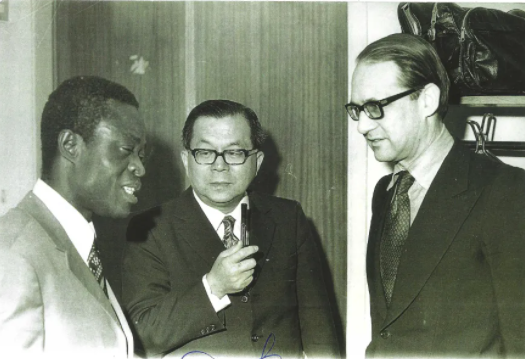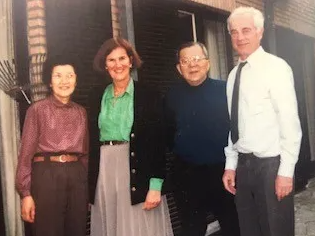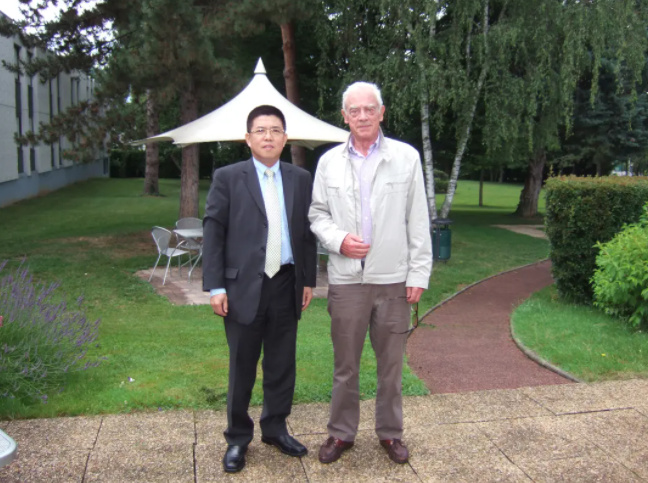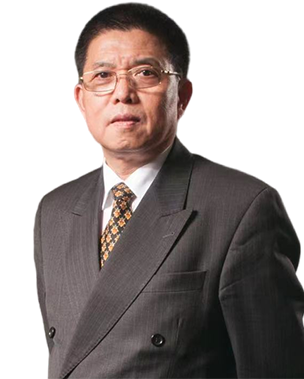Shi Hai Goushen: China's First Person in the Postwar Multilateral Trade System GATT (Part 2)
Editor's Note: This year marks the 20th anniversary of China's accession to the WTO. The predecessor of the WTO was the General Agreement on Tariffs and Trade (GATT), which had been in operation for 46 years. The history of China and GATT/WTO is tortuous and tortuous. China is a founding contracting party to the GATT. After the founding of New China in 1949, the Taiwan authorities announced their "withdrawal" from the GATT in 1950. In 1965, the Taiwan authorities participated in the GATT activities as observers. After the restoration of China's seat in the General Assembly in 1971, the GATT invited representatives of the Taiwan authorities to leave. In 1986, China applied to restore its seat as a contracting party to the GATT. In 1995, the GATT was replaced by the WTO. In that year, China applied to join the WTO, and until the end of negotiations in 2001, it became a member of the WTO.
Although China has experienced several ups and downs in GATT, from the beginning of the establishment and operation of GATT through negotiations, until more than 20 years later, there has always been a Chinese who has been working in the GATT Secretariat and serving as a senior official. With his professional skills and generous virtues, he has won the respect and love of representatives of various countries and colleagues in the Secretariat in the "Rich Club" of GATT. From the founding of New China in 1949 to the reform and opening up in 1978, China and GATT have had no official exchanges for nearly 30 years. However, due to his perseverance, GATT and China are inextricably linked.
Shi Hai Goushen:China's First Person in the Postwar Multilateral Trade System GATT(Part 2)
2021 11/24
Editor's Note:This year marks the 20th anniversary of China's accession to the WTO.The predecessor of the WTO was the General Agreement on Tariffs and Trade(GATT),which had been in operation for 46 years.The history of China and GATT/WTO is tortuous and tortuous.China is a founding contracting party to the GATT.After the founding of New China in 1949,the Taiwan authorities announced their"withdrawal"from the GATT in 1950.In 1965,the Taiwan authorities participated in the GATT activities as observers.After the restoration of China's seat in the General Assembly in 1971,the GATT invited representatives of the Taiwan authorities to leave.In 1986,China applied to restore its seat as a contracting party to the GATT.In 1995,the GATT was replaced by the WTO.In that year,China applied to join the WTO,and until the end of negotiations in 2001,it became a member of the WTO.
Although China has experienced several ups and downs in GATT,from the beginning of the establishment and operation of GATT through negotiations,until more than 20 years later,there has always been a Chinese who has been working in the GATT Secretariat and serving as a senior official.With his professional skills and generous virtues,he has won the respect and love of representatives of various countries and colleagues in the Secretariat in the"Rich Club"of GATT.From the founding of New China in 1949 to the reform and opening up in 1978,China and GATT have had no official exchanges for nearly 30 years.However,due to his perseverance,GATT and China are inextricably linked.
Tang Xiaobing,a consultant to Gaopeng Law Firm,is the first official in China to participate in the GATT negotiations and a Chinese employee serving for the United Nations and WTO.He has many interactions with this staunch Chinese in GATT.On the occasion of commemorating the twentieth anniversary of China's accession to the WTO,Lawyer Tang wrote an article to recall the past in memory of the ancestor who contributed to China's participation in the multilateral trading system.
Continued from above:Gao Peng's Viewpoint|Shi Hai Goushen:China's First Person in the Postwar Multilateral Trade System GATT(Part 1).
In 1972,at the invitation of the United Nations,Mr.Shi planned technical assistance for developing countries to participate in multilateral trade negotiations.Under his impetus,the Third UNCTAD Conference held in 1972 adopted a resolution:deciding that UNCTAD should use UNDP funds to establish a technical cooperation project programme for multilateral trade negotiations to provide technical assistance to developing countries participating in the GATT Tokyo Round of multilateral trade negotiations.Therefore,Mr.Shi was once known as the"originator"of the UNCTAD MTN Project Program.
On March 1,1973,at the invitation of the Secretary General of UNCTAD,Mr.Shi left the GATT Secretariat and transferred to the Division of the Technical Cooperation Assistance Programme for Multilateral Trade Negotiations of the United Nations Conference on Trade and Development(UNCTAD MTN)as Director,the UNDP/UNDP Inter Regional Project for Multilateral Trade Negotiations(UNDP/UNCTAD IRP/MTN)as Director,and the Trade Policy Adviser to the Secretary General of UNCTAD until 1979.
From 1973 to 1979,Mr.Shi,as the head of the"cross regional project"of UNCTAD multilateral trade negotiations,led an international team of experts to provide various technical assistance and negotiation capacity-building to governments and delegations of developing countries to strengthen their ability to handle various aspects of the Tokyo Round of trade negotiations.
During the entire Tokyo Round of trade negotiations(including preparatory work),Mr.Shi was responsible for assisting the Coordinating Committee for Multilateral Trade Negotiations among Developing Countries and its regional groups in preparing for the Tokyo Ministerial Conference in September 1973,including drafting the text of the Tokyo Declaration;Negotiate the principles and objectives of the Tokyo Round;Prepare confidential briefings and provide recommendations to developing country governments on the background,potential benefits,negotiation techniques,and tactical considerations of each specific tariff and non-tariff trade barrier in the negotiations;Organize and organize seminars,workshops,and coordination meetings on the overall or specific negotiating themes of the Tokyo Round in Geneva and different locations in Asia,Africa,and Latin America;Assist in establishing regional technical assistance projects for multilateral trade negotiations in Africa,Asia Pacific,Latin America and West Asia;Coordinate and support the activities of these regional project organizations.
During his tenure as President of the GATT Training Institute,Mr.Shi focused on the training of negotiators from developing countries and the development of human resources;During his tenure as Director of the Development Division of GATT,he actively promoted GATT's discussion of the"trade and development"agenda within his mandate,and promoted trade liberalization in the interests of developing countries.In particular,when he was the head of the"cross regional project"of UNCTAD multilateral trade negotiations,he made positive efforts and valuable contributions to the effective participation of developing countries in various negotiations during the Tokyo Round of multilateral trade negotiations.Mr.Shi is deeply respected and loved by developing countries,especially many Latin American countries.In 1989,when Venezuelan President Carlos Andrés Pérez took office,he also sent a special plane to receive Mr.Shi from Caracas to attend his inauguration ceremony.It can be seen that his relations with Latin American developing countries are very unusual.

Figure 5: Mr. Shi (middle) and colleagues from the GATT Secretariat
Since his retirement in 1979, Mr. Shi has continued to provide advisory services to governments and international agencies on trade policy issues, as well as the handling of trade policy disputes and negotiations, as a private trade policy consultant, including the "Handbook for Textile Negotiators" edited and written for UNCTAD; Advising participating countries on the operation of the MFA; Organizing and organizing GATT seminars for officials from developing countries; Testifying at hearings on the preferential system in the United States Congress; Attending trade policy meetings of the Organization of American States as a UNCTAD representative; Providing advice and assistance to developing countries (such as Costa Rica and Venezuela) in acceding to GATT; Advising UNCTAD and developing countries on the preparations for the Uruguay Round and subsequent negotiation stages; Visiting governments on behalf of UNCTAD and UNDP to assess their needs and support for regional technical cooperation projects in areas such as regional trade arrangements and the Uruguay Round; Preparation of documents on the Uruguay Round issues for the Latin American Regional Group Coordination Meeting; Participate in international discussions on the Uruguay Round hosted by United Nations agencies, the Commonwealth Secretariat, etc. He has participated in several symposiums and seminars on China's position in the GATT.
Mr. Shi once told me about the connection and distinction between the guarantee period, the limitation of action for guaranteed debts, and the limitation of action for main debts. Legend (Note: The long horizontal axis is the time axis, click to view the larger picture) In May 1948, when Mr. Shi joined GATT, GATT had just started to operate, and morale was very low, barely surviving. He remembered that GATT had been at a low ebb for quite some time.
Due to the temporary entry into force of GATT, its status has been uncertain, and the secretariat was also very small at that time, with only 7 professional staff members, including Mr. Shi. By 1955, the GATT Secretariat, including non professional staff, had only over 40 employees. The GATT Secretariat has been afraid to recruit new staff for a long time, and those who have already joined the workforce have been delayed in becoming regular employees.
On April 22, 2011, I met Mr. Paul Luyten, a Belgian and an old subordinate of Mr. Shi, at a hotel in the French town of Ferney Voltaire near Geneva. He told me that he was Mr. Shi who was recruited to the GATT Secretariat in 1955. He was then a P1 level assistant official. "He was supposed to become P2 after two years, but the GATT secretariat has been dragging his feet since his two-year contract expired, delaying him from becoming a regular.". Later, under Mr. Shi's repeated efforts, he achieved his wish to become a regular worker in 1958. To this end, Mr. Shi spent a great deal of effort and time writing three lengthy memorandums to persuade the upper echelons of the GATT Secretariat. Mr. Paul Luyten has always retained the three memorandums he wrote for his promotion more than 60 years ago. And forwarded them to me for preservation today. He has been very grateful to Mr. Shi all his life. In 1966, Mr. Paul Luyten returned to the Belgian Ministry of Foreign Affairs. Later, he served as the first European Community (now known as the EU) Ambassador to GATT and Permanent Representative to Geneva. Their two families have been good friends since the 1950s; It continues to this day. Before Mr. Shi died in November 1997, he also made a special trip to Washington to visit Mr. Shi.

Figure 6: Mr. Shi and Mr. Luyten

Figure 7: Tang Xiaobing and Mr. Luyten, the first European Community ambassador to GATT
After the end of World War II, China, as a victorious country, together with the United States, Britain, France, and other countries, established the multilateral trading system in 1948, and signed the GATT in 1948 by representatives of the then national government. Later, due to the founding of New China and the collapse of the National Government, the Chiang Kai shek Group fled to Taiwan. In 1950, the Taiwan authorities who stole the seats in China's GATT had to withdraw from the GATT because they were unable to fulfill the duty reduction obligations promised by China in the GATT (although the legality of the withdrawal was questioned). New China was then subject to Western sanctions due to the Korean War and was unable to exercise its representation in GATT activities.
In the absence of China's participation in GATT, it was indeed a very difficult task for Mr. Shi to remain alone in the GATT Secretariat. Mr. Shi's career can be said to be very successful, which fully demonstrates his strong perseverance and endurance. Mr. Shi has a good background in both Chinese and English, as well as solid professional skills. Otherwise, it would be difficult for him to stick to it for twenty-five years in the then GATT Secretariat.
Mr. Shi has a good reputation among his old colleagues in the GATT and UNCTAD secretariats, including the diplomatic corps in Geneva. Every time I talk to them about Mr. Shi, they all believe that Mr. Shi has always been very sincere, simple, reliable, and loyal to his colleagues and subordinates. He is very helpful and humorous.
In the modern history of multilateral commercial diplomacy, no country has had a tortuous and intricate relationship with GATT like ours. From the founding of New China in 1949 to the reform and opening up in 1978, we had no official contact with GATT for nearly 30 years. However, due to Mr. Shi's persistence, GATT is still inextricably linked to us.
Strictly speaking, Mr. Shi joined the United Nations Interim Commission for the International Trade Organization in May 1948 as the secretariat, not the GATT secretariat. "Because GATT is not an organization, it is just an agreement, and there has never been a secretariat.". Due to the failure of the United States Congress to approve the establishment of the International Trade Organization in May 1948, GATT temporarily took effect and borrowed the secretariat of UNICITO. It was not until the late 1960s and early 1970s that the secretariat of UNICITO was renamed the GATT secretariat; UNICITO Executive Secretary is also renamed GATT Director General.
In 1971, the United Nations adopted resolution 2758, recognizing our government as the only legitimate government representing China, and restoring our seat in the United Nations. As GATT complied with United Nations resolutions, Taiwan's observer seat in GATT was cancelled.
In January 1973, Mr. Shi returned home on vacation and introduced the situation of GATT to the then International Group of the Ministry of Foreign Trade (established in 1972 and later renamed the International Relations Group).
On November 16, 1974, Mr. Shi attended a forum on the "General Agreement on Tariffs and Trade" convened by the Director General of the International Relations Group of the Ministry of Foreign Trade, Sai Zishuang, at the Beijing Hotel. Participants include: the International Department of the Ministry of Foreign Affairs, the three bureaus within the Ministry, the Customs Bureau, and other units. At that time, Mr. Shi had left the GATT Secretariat to serve as Director of the UNCTAD Multilateral Trade Negotiations Assistance Programme Division.
On August 4, 1980, China, as one of the 18 members of the Executive Board of the United Nations Interim Transitional Commission for the International Trade Organization, participated in the election of GATT Director General Arthur Dunkel. The Executive Council remained in existence until the establishment of the WTO because it belonged to the United Nations.
Mr. Shi is a historical witness. He personally witnessed the first 30 years of GATT without China's participation; It has also witnessed significant changes in the first 20 years of the country's reform and opening up. The greatest regret of Mr. Shi's life was that he was unable to participate in the negotiations on China's accession to the GATT. If he were still alive today, when China returned to the international multilateral trading system WTO and saw the tremendous changes brought about by the country's reform and opening up to the outside world, he would surely be filled with emotion.
(This article is translated by software translator for reference only.)
Related recommendations
- Tax lawyers review the draft of the revised Tax Collection and Administration Law for soliciting opinions
- New Measures for Punishing "Dishonesty" by the Supreme People's Court at the Two Sessions in 2025 (Part 3): "Height Limit" Single Release Mechanism
- New Measures for Punishing "Dishonesty" by the Supreme People's Court at the Two Sessions in 2025 (Part 2): Grace Period System
- Interpretation of the Management Measures for Compliance Audit of Personal Information Protection - Feeling the Rhythm and Rhythm of Regulatory Flow



